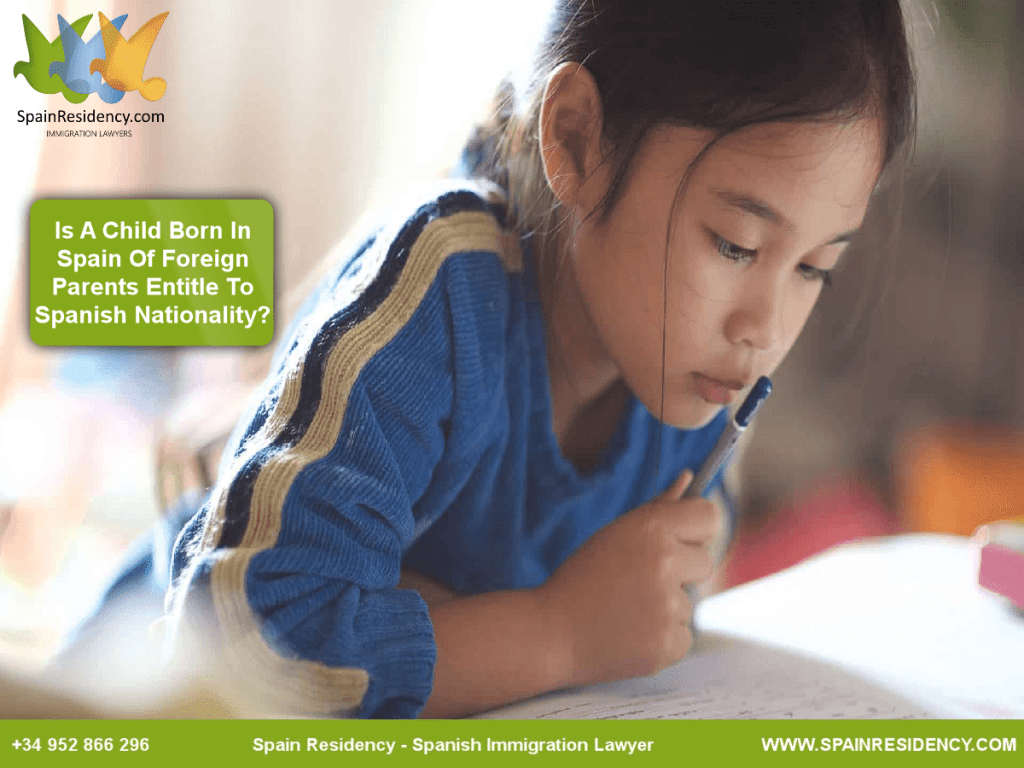Is a child born in Spain of foreign parents Spanish, and entitle to Spanish nationality?
The issue at hand concerns the status of children born to foreign parents in Spain and whether they can be recognized as Spanish nationals.
This topic evokes considerable uncertainty, as many foreigners are unsure about the nationality their child will possess if born in Spain instead of their country of origin. The central question revolves around whether birth within Spanish territory automatically grants Spanish nationality or if specific legal procedures or conditions must be met.
To untangle this intricate matter, let us delve into the relevant details and provide comprehensive answers to these inquiries.
The notion that a child born in Spain to foreign parents automatically obtains Spanish nationality is not entirely accurate. While there are instances where this may hold true, it is important to note that acquiring Spanish nationality is contingent upon factors beyond birth alone.
It is vital to emphasize that birth within a particular country does not inherently confer its nationality upon an individual. Multiple additional factors must align for nationality to be granted, and the general rule tends to grant the newborn the nationality of their parents.
Nevertheless, it is undeniably true that children born in Spain to foreign parents who reside in the country enjoy certain advantages when it comes to applying for and obtaining Spanish citizenship. The process for them is often expedited, straightforward, and, in some cases, automatic.
To gain a precise understanding of the situation, it is necessary to examine two distinct categories in which these children may fall:
Menu:
In this post we cover the following: (click any section to see its content)
NATIONALITY BY PRESUMPTION:
This category encompasses children who automatically become Spanish nationals by virtue of birth in Spain. This is commonly referred to as nationality by simple presumption. The primary requirement for acquiring this form of citizenship is that the parents must belong to a country whose legislation does not confer nationality upon a child born abroad. Several countries fall into this category, including Argentina, Colombia, Costa Rica, Chile, Ecuador (for children born before 2008), Guinea-Bissau, Peru, Sahara, Switzerland, Sao Tome and Principe, and Venezuela. If both parents are from one of these countries and their child is born in Spain, the child will acquire Spanish nationality due to the absence of nationality attribution by their country of origin. Additionally, there are two exceptional cases where the child can obtain Spanish nationality directly, even if the parents are not from the aforementioned countries: if the mother is from Morocco and is unmarried, and the father is from one of the listed countries, or if the parents are from specific regions of Palestine, with additional requirements applying in the latter case.
The process involved in acquiring Spanish nationality through this category requires the parents to refrain from registering the child’s birth through their country’s consulate. Registering the child’s birth through the Civil Registry in Spain is crucial. The application for Spanish nationality for the child can be made at the Civil Registry, provided the following documents are furnished: a certificate of residence indicating that the child lives with their parents at the same address, the child’s birth certificate, translated and legalized birth certificates of both parents from their country of origin, original and copy of the complete passports of both parents, a family record book (and copy), and a consulate certificate stating that the country of origin does not recognize the child’s nationality.
It is worth noting that many parents in this situation often obtain Spanish residency based on their child’s nationality. Through the family arraigo procedure, parents can apply for a one-year residence and work permit, citing exceptional circumstances due to being the parent of a Spanish child under 18 years old. The only requirement is to demonstrate that the child resides with their parents, who are the applicants for residence.
NATIONALITY AFTER ONE YEAR IN SPAIN:
This category pertains to parents who are not from the countries mentioned earlier, and whose country of origin automatically confers their nationality upon their child at birth, regardless of the place of birth. In such cases, the process for obtaining Spanish nationality is slightly lengthier but generally more straightforward compared to the general case. The procedure involves applying for citizenship through residency after one year of legal residence in Spain. To initiate the process, it is crucial that the parents themselves have legal residency in Spain. Once the child is born, the parents must register the birth with the Civil Registry to obtain the child’s passport reflecting the parents’ nationality. Subsequently, the parents must apply for the child’s residency as an underage child of legal residents. After one year of holding residency, the child becomes eligible to apply for Spanish nationality without having to undergo any exams, as they are under 18 years old.
This process offers several advantages, notably reducing the required period of continuous residence in Spain from 10 years to just one. Furthermore, one of the key benefits is that the child can undertake the process at any age. For instance, even if the child is born in Spain but later returns to their country of origin, they can return to Spain at any time, establish legal residence, and, after one year of residency, apply for Spanish nationality.
In conclusion, the acquisition of Spanish nationality for children born in Spain to foreign parents depends on specific circumstances and legal provisions. While birth in Spain does not automatically confer Spanish nationality, there are distinct scenarios where children may directly obtain Spanish citizenship through nationality by presumption or after one year of residence. Understanding the nuances and following the appropriate procedures, as outlined by Spanish law, is paramount for parents seeking to determine their child’s nationality.
See-here for Spanish nationality-law and please visit-here for access to our Video-Blog.
Would you like legal assistance to obtain nationality in Spain?
We will prepare with you the required documentation, complete the application forms, arrange the required appointments and legally advise.
Permanent residency is obtained after 5 years of Spanish Residency through Self-Employed Residency, Digital-Nomad, Non-Lucrative Residency or Golden-Visa. This followed by 5 years as a permanent resident in Spain and means you can then obtain Spanish Citizenship with a Spanish Passport.


